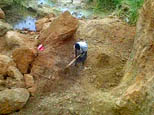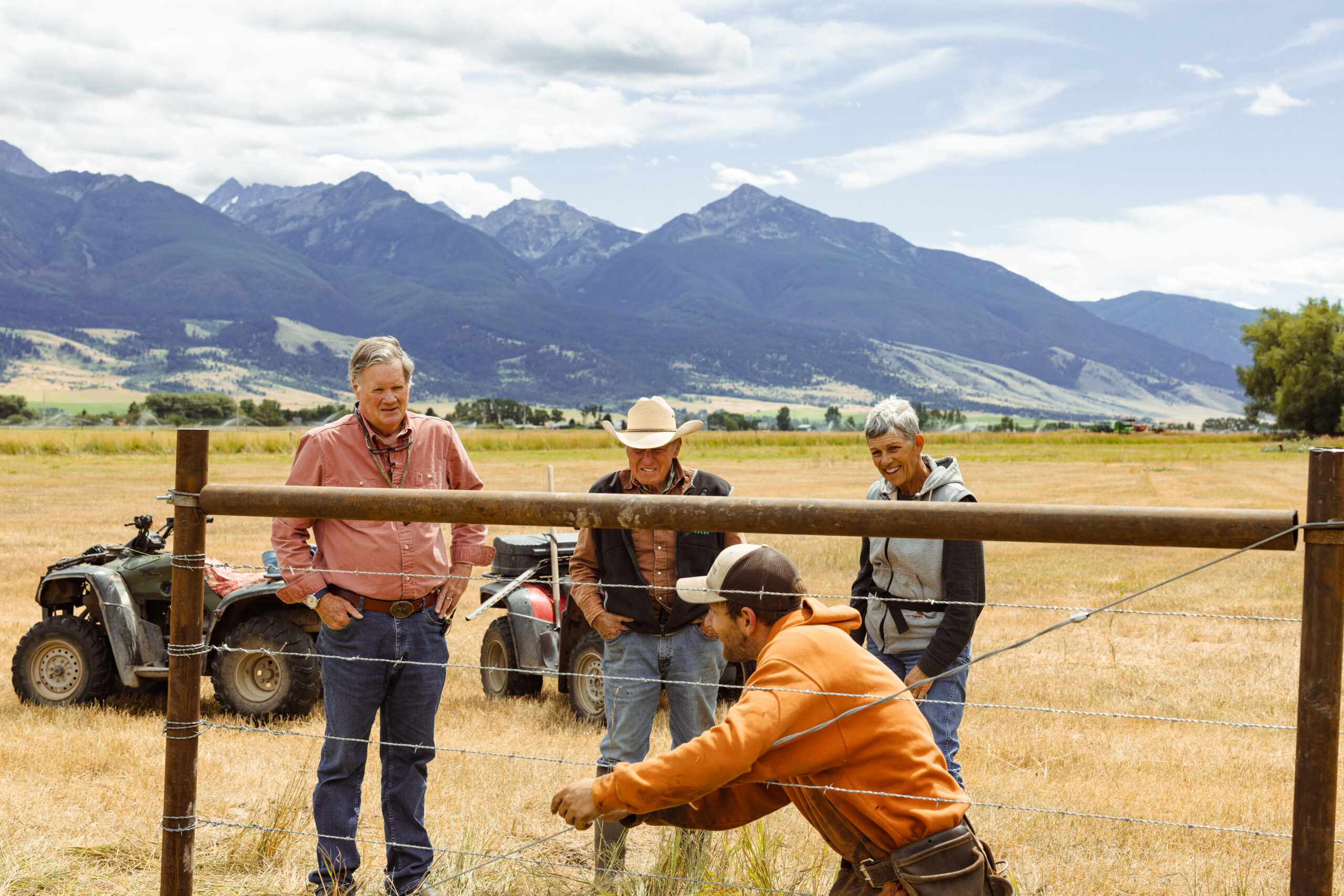In the lush highlands of eastern Uganda, mud is a valuable commodity— so long as it is “quality” mud, with certain characteristics coveted by residents who construct their homes out of the stuff.
The search for mud is simple. Go north toward the town of Sironko about ten miles from the provincial capital of Mbale, and then, a few hundred feet past a cellular phone tower, you turn off the paved road and wind down a potholed lane. There you join a procession of mud customers. They come in trucks, cars, and even on bicycles. Upon reaching the village, Bukhalo, drivers turn left onto a narrower path that takes them into the finest mud quarry for many miles.
About two dozen families control specific pieces of the quarry. Each hires its own diggers, sells its own mud, and sets prices independent of each other. No individuals possess formal, legal title to their portion of the mud quarry, but no one considers this strange. Claims on the mud lands stretch back to the years before Uganda’s independence in 1962, when the British managed these parts. Everyone knows that their ancestors bequeathed them the use of a particular patch of the mud quarry. No one has ever asked for proof of their ownership or even tallied the costs of forgoing title in favor of “customary law.”
Mudslinging in Bukhalo
Yet costs are clear. The families are mired in mistrust. Interfamily squabbles dominate conflicts and theft of mud is common. Without clear boundaries between mud plots, no one seems responsible for ensuring the quarry is flushed with adequate levels of water. No improvements to the quarry have been made. There’s no marketing of the mud. The quarry even lacks a sign.
Disputes between conflicting mud entrepreneurs do get settled—often by visits from the police or trips to the local judge. Settlements are idiosyncratic, and no one keeps records of anything, so when the same type of dispute surfaces, the whole issue must be handled anew. Worse, the lack of cooperation, borne of mistrust and unspecified property rights, produces a “beggar thy neighbor” approach to the pricing of mud. A truck load of mud can fetch $50 on a good day. Yet on any given day, buyers of mud flock to the person selling for the lowest price; and that’s usually the seller with the most urgent need for cash. Rather than create a mud cartel—setting a common price and literally “carving up” the market in an orderly manner—owners undercut each other in a race that some days leads to the bottom. The process hurts everyone in the village by reducing its prized asset.
The trials of Bukhalo’s mud people suggest an urgent need for new legal and political arrangements. In eastern Uganda, as in much of rural sub-Saharan African, land titles don’t exist. There is no national movement in Uganda to get land titling either. Not even experimental titling projects exist. And customary ownership arrangements, stretching back hundreds of years, seem destined to exist for an eternity, despite their painful costs.
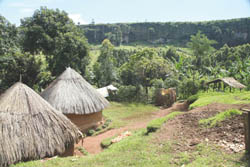
Farmers in these parts grow food for themselves, but they also grow a variety of cash crops: corn, cotton, beans, peanuts, and sunflower seeds. Corn is especially profitable because it stores well and can be sold across borders. Buyers in Kenya and south Sudan pay more—sometimes double— the local market.
The appetite for corn has ignited a frenzy among the enterprising farmers for more land. The more land they can farm, the more corn they can grow (and cash they can collect). The obstacle to greater wealth, however, is the same as that faced by the mud harvesters: no property rights, no titles, no open market for the buying and selling of land, and no use of land as collateral against loans.
For decades farmers accepted the situation. Much land, as a consequence, sat idle. When families left for the big city—as many have done—their land lay fallow. Families often refused to allow others to farm it, fearing that by doing so, even in return for rent, they might lose their customary ownership of the land. Barter presented a solution, but often crops could not easily be turned into cash, rendering them essentially valueless to an absentee farmer. So the safest path was to idle the land until a family member returned to work it himself.
Contracts Without Titles
When Ken Sakwa returned to his family land in Bukhalo from Kampala, the capital of Uganda, he faced this very situation. Having failed to earn a decent living in the big city, he took up farming on his late father’s land about ten years ago. After six frustrating months in which he succeeded only in reminding himself how little he remembered about the intricacies of farming, Mr. Sakwa married a talented female farmer from a neighboring village.
Working as a team, Ken and Jessica Sakwa began an upward ascent. Within a few years, they were farming the three acres that Ken inherited. They started to save money. There is little to buy in Bukhalo and the Sakwas are thrifty. They kept their money hidden in their mud house until one day Mr. Sakwa had an idea: he knew the price of corn and he knew that many neighbors lacked the labor or enterprise to farm all of their land. Why not rent or buy the idle land from neighbors?
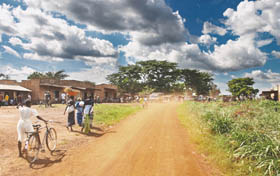
Mr. Sakwa obtained a half-dozen plots of land in this same way over the course of a few years. He established a fair price by calculating how much corn the land can produce in a normal year. Then he subtracted his expected expenses and gave the seller a portion of the annual anticipated profits from farming the land.
The agreements have helped the Sakwa family prosper. But because there are no formal land titles, but only idiosyncratic contracts filed with a local magistrate, disputes are common. Having paid in advance for the use of a neighbor’s land, Mr. Sakwa sometimes faces “submarine” claims by people who say they are relatives of the seller and insist they too should receive money for his use of “their” land.
Mr. Sakwa has successfully fended off these claims with the help of a local judge who understands that, even in the absence of a land titling system, exchanges of land for money are occurring and will continue to occur, in part because of the market incentives to farm idle land. This judge has helped Mr. Sakwa settle disputes, though in two cases he has been forced to make additional payments to the original owners.
Fear of legal wrangles discourages Mr. Sakwa from making more land deals. Rather than expanding his holdings in an insecure fashion, he is shifting away from farming and moving into the buying and selling of crops. He’s bought a truck with money that might have gone into more land acquisitions. With his truck, he’s begun a thriving business buying crops from growers and then ferrying the crops to buyers in cities. While margins are small, and Mr. Sakwa must sometimes front money to farmers for seeds or to help them in emergencies, he prefers his emergent role in agribusiness to the tricky task of assembling more farm land.
Mounting a Campaign
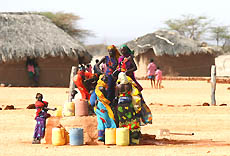
The major obstacle to a broadbased campaign for expanded land rights is the relatively weak position of rural people throughout the sub-Saharan area. There are flickering signs of change. The African Union, the region’s leading political association, raised the profile of land issues in 2009 with a declaration on “the need for strong systems of land governance.” But there has been no agreement on what those systems should look like. In some highly centralized countries, such as Ethiopia, the government appears to want weak land rights in order to facilitate land sales to foreign agribusiness companies. In countries with strong democratic traditions, such as Ghana, the power of land is so distributed and shared that making refinements to customary principles in rural areas is difficult. And then there are countries such as Kenya, South Africa, and Zimbabwe, where white settlers appropriated land during colonial periods and where efforts at redress have often been stalled, abandoned, or mishandled. In these countries, legacy land issues overshadow the everyday practical reforms that are still needed. In short, despite a growing awareness of the importance of improving “systems of land governance,” land reform remains a low priority in Africa.
Yet experiences in Bukhalo offer reasons for optimism. While the need for titling and clearer property rights is apparent, the lack of them is not paralyzing this village. The people of Bukhalo are not passively accepting their situation. Rather they are fitfully improvising, crafting creative adaptations to difficult situations. These adaptations, as the choices of both the mud quarry owners and the Sakwa family suggest, are not without shortcomings, yet they deserve to be viewed as part of a journey toward true property rights—a bumpy, but genuine one.
